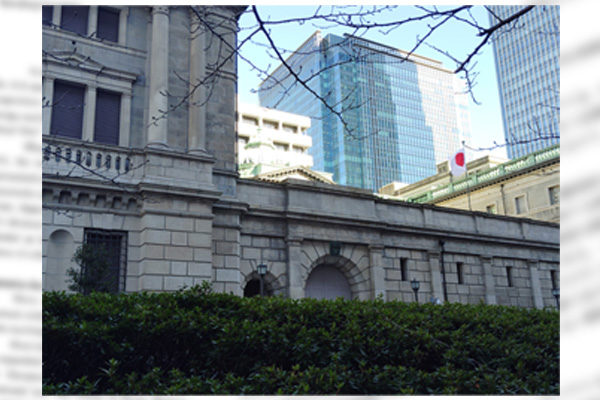The Bank of Japan seems highly inclined to end its negative interest rate policy at its monetary policy meeting on March 18 and 19. As the average wage increase through spring labor-management negotiations compiled by the Japan Trade Union Confederation has reached 5.28%, the highest in 33 years, the central bank might have concluded that its 2% inflation target is on track to be achieved. In fact, however, domestic demand recovery is weak. Before deciding to raise interest rates, I would like the BOJ to demonstrate its firm determination and provide relevant explanation to prevent deflation from recurring.
Still insufficient recovery in domestic demand
In February 2016, the central bank introduced a policy interest rate to induce negative short-term interest rates with the aim of encouraging financial institutions to lend money. The current policy rate is minus 0.1%. A proposal to raise it to 0.0-0.1% is considered likely. Given domestic banks’ outstanding loans at 686.4 trillion yen as of the end of September last year, an interest rate of 0.1% represents 686.4 billion yen. The financial community claims that a world with positive interest rates is normal. Once the policy interest rate becomes positive, however, market interest rates may tend to move upward, exerting an enormous impact on the national economy. This is because the burden on borrowers such as companies and households increases as bank profits are naturally pushed up.
The justification for positive interest rates relies on the premise that concerns about insufficient demand relative to supply capacity have dissipated, and there is confidence in breaking away from the deflationary phase that has persisted since 1997. However, household consumption in the October-December quarter of last year contracted for the third straight quarter. The rise of consumer price index has slowed down, and in January the index rose 2% year on year. But, if excluding overseas package tour expenses, the index posted a 1.9% increase. Still, the economy has been holding up because capital investment by private firms has been increasing against the backdrop of the yen’s depreciation. The yen-dollar exchange rate is influenced by the interest rate differential between Japan and the United States. If the prospect of Japan raising interest rates and the United States cutting them becomes clear, the yen could turn up against the dollar.
The high wage hike, compiled by the Japan Trade Union Confederation, mainly applies to large companies. It is uncertain whether substantial wage hikes would penetrate among medium-sized, small and micro companies that account for some 70% of Japan’s total employment. Overall, at this point, it is difficult to conclude that real wages for all workers will rise sustainably, and that we are unequivocally breaking away from deflation through domestic demand.
Repeated mistakes in the past
The BOJ has had a peculiar tendency to be wary of inflation rather than deflation in the first place. In August 2000, the central bank lifted its zero-interest-rate policy, leading the Japanese economy to plunge back into a deflationary recession. It ended its quantitative easing policy in March 2006 and terminated the reintroduced zero-interest-rate policy in July that year. This was also a mistake that came as deflationary pressure remained. If the BOJ is too much of a hurry this time again, the best opportunity to break away from deflation for the first time in 30 years could dissipate. BOJ Governor Kazuo Ueda has a grave responsibility.
Hideo Tamura is a Planning Committee member at the Japan Institute for National Fundamentals and a columnist at the Sankei Shimbun newspaper.


